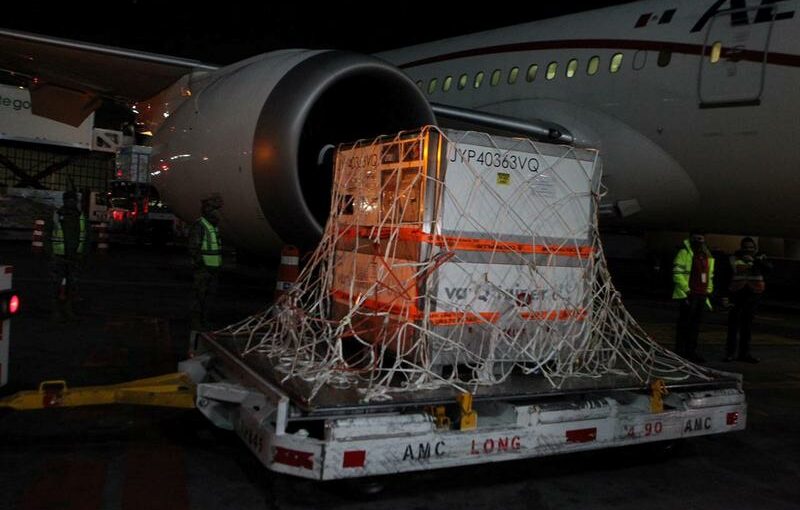MEXICO CITY (Reuters) – Mexican President Andres Manuel Lopez Obrador on Monday stressed he was working to ensure more COVID-19 vaccine shipments, as his government faced mounting criticism that its inoculation program is too slow and riddled with problems.
After an initial burst a few weeks ago, vaccine supplies to the country have dried up and the number of doses injected has plummeted to a few thousand daily.
Mexico has arranged supplies of multiple vaccines in a broad diplomatic push over recent months, but shots have been slow to arrive amid a global scramble in which wealthy countries tied down the lion’s share of supplies.
Since the first shipment of Pfizer vaccines in late December, the country has vaccinated just 637,681 people, or 0.51% of its population of 126 million.
That puts it in 18th place behind other nations, including the United States and Brazil and smaller countries such as Romania, according to data compiled by the Mexican government.
“(We are) working every day with a positive attitude… looking to resolve problems, overcome all the obstacles,” Lopez Obrador told reporters at his first news conference since he tested positive for the virus two weeks ago, when asked how he planned to accelerate the vaccination rate.
“There is nothing better than the vaccine,” he added.
Pfizer has so far sent 766,350 doses to Mexico, after a delay in shipments amid the global race to secure enough supplies. The shot, which requires two doses, is the only type yet available in Mexico.
Lopez Obrador said that Pfizer’s vaccine shipments will resume by Feb 18.
He said one million AstraZeneca vaccines produced in India would likely reach Mexico by the weekend.
Mexico is expecting Russia’s Sputnik V vaccine to begin arriving this month.
Healthcare workers were given first priority for the Pfizer shots. So far only 12% of them have been fully vaccinated, but 88% have received their first shot.
All the same, Lopez Obrador said a plan was still in place to provide a first dose to all people over 60 years old, or 14.46 million people, by the end of March.
Officials last week launched a website for registrations, but it initially crashed from the surge of demand. In the following days, 3.6 million people had registered.
Source: Read Full Article
